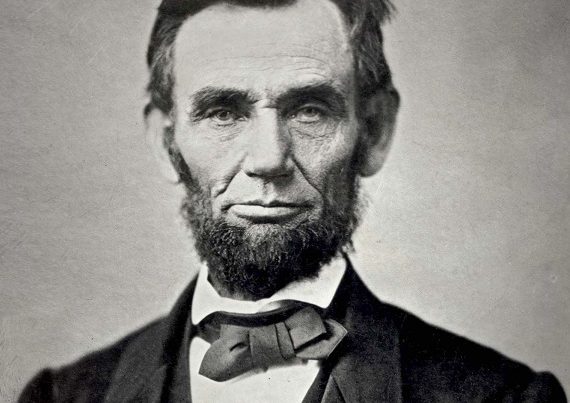
A typical calumny directed at Confederate soldiers is that they don’t merit commemoration because they were traitors. It is a lie for two reasons.
First, the Confederate states had no intent to overthrow the government of the United States. They seceded merely to form a government of their own. The first seven states that seceded during the winter of 1860-61 did not “make war” on the United States; they accepted it when the Washington government decided to coerce them back into the Union. The four upper-south states that remained Union-loyal until the coercion in the spring of 1861 had previously warned Washington that they regarded the coercion of any state to be unconstitutional and would fight to prevent it. Those four states provided half of the 11-state Confederacy’s white population, the chief source of her soldiers. In truth, the legal status of secession was unsettled in 1861. The Constitution neither outlawed nor authorized it. It was a remedy that geographically isolated political minorities repeatedly considered from 1789 to 1861.
The Northeastern states threatened secession at least five times during America’s first fifty-six years. The first time was during George Washington’s presidency when Treasury Secretary Alexander Hamilton warned that the Northeastern states would secede unless the Federal Government agreed to assume an obligation to pay-off their Revolutionary War debts. In 1803 New Englanders threatened to secede over the Louisiana Purchase. They worried that the new territories would become new states thereby reducing New England’s influence.
In 1807 New England again threatened secession after America announced a trade embargo, hoping to avoid the War of 1812 by use of economic sanctions. New Englanders objected because their region was then America’s maritime center. After the embargo failed, Congress declared war on Great Britain during President James Madison’s first administration. Yet New Englanders were uncooperative in our nation’s defense. They traded with the enemy and refused to put their militia into Federal service as ordered by President Madison. When the British finally extended their blockade to New England during the last seven months of the thirty-month war, the region held a convention in Hartford to discuss secession or other steps to protect their interests from Federal powers. In January 1815 the Convention sent emissaries to President Madison to demand five additional constitutional amendments. Upon arriving in Washington, they learned that the war had ended and went home in embarrassment. They did not need the amendments because the Treaty of Ghent ended the war thereby ending the British blockade.
Even as late as 1844 leaders in the Northeastern states warned they would secede over the proposed annexation of Texas. In 1843 twelve congressmen, including former President John Quincy Adams, signed a letter to the people claiming that Texas annexation would not only result in the secession of “free states” but would “fully justify it.” A year later former New York Governor and future secretary of state under Presidents Lincoln and Andrew Johnson, William H. Seward, wrote that the “free-labor states cannot yield” to Texas annexation. They would consider it grounds “for secession, nullification and disunion.” The Massachusetts legislature underscored the opinion by declaring the 1845 Texas annexation to be unconstitutional.
In sum, secession was a remedy that geographically isolated political minorities repeatedly considered. As a result, it tended to find favor within those regions that were out-of-power in Washington. It was a game of musical chairs. Whenever a regional minority felt that they could never regain the majority they worried that their constitutional rights might be trampled by a tyrannical simple majority in the central government. By 1861 the South was caught without a chair in the game when the music stopped. Under different circumstances it could have been the North. Although they threatened secession often enough, Northerners were never destined to become a permanent minority as were Southerners.
The second reason that Confederate soldiers were not traitors is that their loyalty was first to their state and secondarily to the central government. Prior to the war the average Confederate soldier was a yeoman farmer who rarely travelled outside his state. His taxes were chiefly paid to his state. He only paid federal taxes indirectly when he purchased imported dutiable items that implicitly included a tariff as a component of the purchase price.
Northerners felt much the same way. As Shelby Foote explained, prior to the Civil War the United States was often thought of as a collection of independent states and spoken grammatically as “the United States are.” After the Civil War it was increasingly spoken of as “the United States is,” which we commonly say today without even thinking about it. The war made us an “is.”
Finally, after a couple of decades postbellum Southerners welcomed reconciliation. They eagerly volunteered to fight in the 1898 Spanish-American War. One of them was former Confederate General Joseph Wheeler. President William McKinley appointed the sixty-one year old erstwhile cavalryman as Major General commanding a cavalry division that included Theodore Roosevelt’s “Rough Riders” regiment. Despite the censure historians heap upon white Southerners of the 1890s, those volunteers can be credited for fighting under a flag that belonged to their enemy only thirty-odd years earlier. Southerners also readily enlisted in World War I, World War II, Korea, Vietnam and later wars. Even today the South accounts for 44% of America’s army volunteers while containing only 36% of her population.
In short, Confederates soldier were not a traitors in the context of the unsettled constitutional principles of their era. They were asked to do what men have done since prehistoric times: defend their homes. They did so as heroically as any army of American soldiers.






